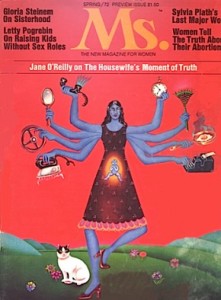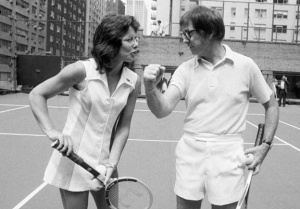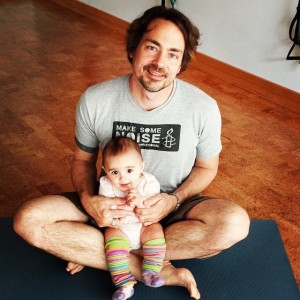April 29, 2015
Today I’m thinking about how much my life has changed in 30 years. April 29, 1985 was the best day in my life. It was my last day of college classes at Emory University. I was going to be graduating with a double degree in Sociology and Political Science and then heading off to Europe (and Live Aid) before starting grad school in the fall. It was No Business As Usual Day, a national day to protest Reagan’s arms race and I had organized a major teach-in on campus. It was the beginning of my relationship with my first girlfriend, a cool Danish-American freshman named Starla. I was 21.
But the thing made it the best day ever is the fact that it was the day I played on stage with U2 at the Omni in front of 18,000 people. It’s a long story. I knew Bono from my time in Dublin so everybody thought it was a set up. I just helped him out in a pinch when his “Anybody can be a rockstar” bit on the Unforgettable Fire tour stumbled. They guy he pulled up on stage couldn’t play a guitar. He looked at me in a panic and asked, “Randy, can you do this?” So I played Dylan’s “Knockin’ on Heaven’s Door” in my hometown with the greatest band on earth. It was the moment every rock fan fantasizes about; to be pulled out of the crowd to join the band and looking back at the masses screaming for you. It was pure rock and roll bliss.
It didn’t hold a candle to the day Cozy was born.
I pretend to understand my brain, but it’s a complete mystery how I could love this kid more each day. From the second I first heard her heartbeat to the moment a few minutes ago when I gave her some smushed up prunes to help her poop, it’s been a unwavering incline of Dad Love. She’s an 8-month-old love factory. Sometimes she presses her forehead against mine and I feel like she is transmitting everything that is good in the universe into me. Bono never did that.
It’s weird to have a fully formed human completely dependent on us. Maybe that’s the evolutionary thing. Like by the time she’s 16 and doesn’t really need us for food and shelter, I won’t give a rat’s ass about her. But at the moment, I can’t seem to get her out of my head. Sure, there are little bits where I groan. Like when she wakes up at 7 am with a big smile on her face, pulling my hair to get the day started. (I thought one of the perks of being unemployed was getting to sleep in!) Or when I’ve done everything I can think of and she’s still crying and I just want to go make a Jack & Coke. But even then I’m madly in love with her.
So that’s where the fear of death comes in. Not mine, hers. There’s just so much horror in the world. There was a story in the local news recently about a 7-month-old boy who died when the baby-sitter purposely cracked his skull. Turn it off. Or the story last year of the Intel worker whose 6-month-old died when he forgot she was in the car at work. Too much to handle.
When Cozy was a newborn, we were watching the 1996 film Trainspotting. I wanted to share Ewan McGreggor man-crush with Andrea. I forgot about the scene where the women with the baby is so strung out on heroin that she neglects her kid in the crib. When she sobers up, the baby is dead. I just turned the film off at that point.
I think about driving and some asshole talking on his or her cell phone runs a red-light and plows into us. In the worst version of that is the car on fire and I can’t get Cozy out of the car seat. This is the shit you think about when you are a parent. I used to think about what band is coming to town. Now I just want to know if my sleeping child is breathing.
When I was a teenager, there was a fad of dead baby jokes. Why did the dead baby cross the road? It was stapled to a chicken. Stupid shit like that. We had a substitute teacher named Mrs. Neely, an older woman. Word got out if you told her a dead baby joke, she would flip out. We would just mutter “dead baby” when she walked into the room to see her squirm. I understand now that she must have lost a child and the guilt I carry haunts me. When people talk about “innocent children,” we were not innocent. We were little sociopaths. I can’t imagine what that must be like and I live in constant fear that it is a very real possibility.
This love is not rational and I guess the fear that goes along with it is not rational either. I’ve known people who have lost children and I don’t understand how it wouldn’t transform you. I think they are heroes for just sticking around. If something happened to Cozy, I think I would just be tempted to say, “Check please! I’m done.”
But this isn’t meant to be a bummer blog post; just a commentary on how intense a parent’s love for his or her child can be. I just stare at her in disbelief. How did I help make something so perfect? Yeah, playing with U2 was pretty epic. But not nearly as epic as when my I see my lopsided smile on my daughter’s face. That truly rocks.
Note: Using a cell-phone while driving in Oregon is a Class C violation and the penalty can be as high as $500. Hang up and drive, asshole. ORS 811.507




























